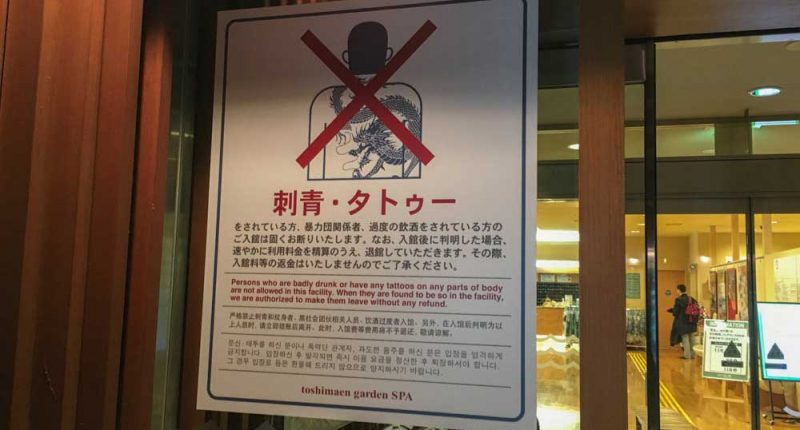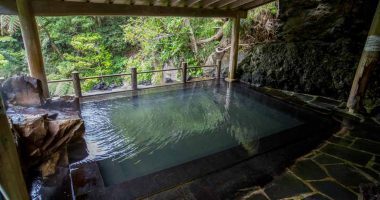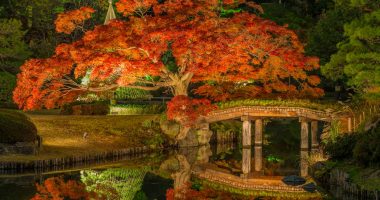As you may already be aware, tattoos are taboo in Japan and most day onsen operate a strict policy regarding tattoos. Basically, if you’ve got one, you’re not coming in. Some go further to clearly stipulate that if you do enter the baths and have body markings (after all, who knows until you’re naked?) then you will be asked to leave. A minority of day onsen do allow tattoos but ask that they be covered, and an even smaller subset openly allow those with tattoos.
As most other countries do not have such a stigma against body markings (indeed, it might be a part of the culture), this can come as a bit of a surprise to some foreign visitors. Wherever possible, I’ve added the tattoo policy of the onsen to each post, and you can search for those day onsen that have no issue with tattoos via the main search page/bar. Given that my wife has three of them, one of which is a little too large to cover up, it’s been something I’ve had to enquire about!
In truth, staff at the day onsen or ryokan don’t typically have an aversion to body markings. The issue is that some Japanese customers (many of whom are among the older generations) have been known to complain to staff when they see others in the baths with tattoos. Because of this the day onsen and ryokan have a flat “no tattoo” policy so they don’t have to deal with such issues. If you do have a tattoo then your options are:
- Don’t tell anyone. As I say, unless another customer complains then its not usually an issue and especially when it comes to foreigners (who clearly don’t have body markings because they’re part of some criminal gang) the chances of this are slim. Nevertheless, you should cover any tattoos with rash bands or bandages if possible, and respect the rules of the onsen in the unlikely event you are asked to leave.
- Be honest and tell the staff. Especially at the day onsen this usually results in being told that you cannot use the facilities, but in some cases the staff may be a little more understanding for foreigners and explain that you need to cover them up and that you might need to leave if other customers complain (again, not likely). The ryokan are typically a little more flexible in that they’ll tell you its fine so long as no-one else complains. This is especially true at the famous onsen regions such as Hakone and Kusatsu, which are more used to dealing with visitors from overseas. Some of the smaller ryokan also allow you to reserve the baths for your sole use for a shorter period of time. This is called kashi-kiri in Japanese. For those ryokan that have such a system you’ll need to arrive early and tell the staff that you’d like to reserve the baths (usually for 45 minutes) as soon as you arrive at the reception. If it’s possible they will give you a time (probably early or late evening) and you can use the baths without fear of your tattoos causing an issue.




